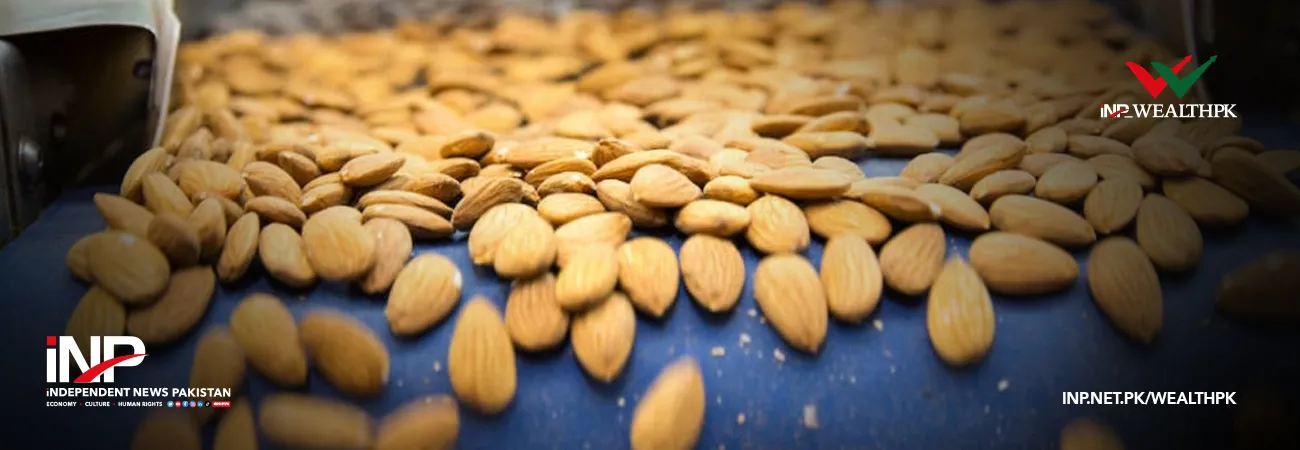INP-WealthPk
Ahmed Khan Malik
Climate change, lack of modern techniques and financing threaten Balochistan’s almond sector, which needs urgent government support to streamline export processes, improve disease management, and enhance trade infrastructure.

Experts and stakeholders call for immediate measures to safeguard the almond industry, which holds both economic and cultural significance. Almond is a significant agricultural commodity in Balochistan, contributing to both local consumption and export markets.
The province is among the largest producers of almonds in Pakistan, with vast orchards spreading across areas like Pishin, Zhob and Qila Saifullah. The almonds produced in these areas are highly prized for their quality and taste, and they form an essential part of both traditional and modern diets.

The almond sector supports the livelihoods of thousands of farmers and workers, particularly in the rural areas where agriculture is the primary source of income. Additionally, almond exports bring much-needed foreign exchange into the country. Masood Kakar, Secretary of Pishin Agri Forum, told WealthPK changing weather patterns posed a key challenge. “The region has been experiencing erratic rainfall and prolonged dry spells, which severely affect crop yields.
Almond trees are highly sensitive to water availability, and the decreasing availability of irrigation water has made it increasingly difficult to maintain healthy orchards. This has reduced yields, with farmers struggling to keep up with the changing weather conditions,” he explained. “Also, the almond sector in Balochistan relies largely on traditional farming methods. Many almond orchards are not equipped with modern farming techniques or machinery, leading to inefficiencies in harvesting, processing, and storage.
The absence of technological advancements makes it difficult for farmers to optimise their yield and quality, leaving them at a competitive disadvantage compared to other almond-producing regions,” Kakar said. He pointed out that almond trees were susceptible to various pests and diseases, which further threaten the sector’s productivity. “Without access to effective pest control and disease management strategies, farmers struggle to protect their crops.
The lack of research and resources to tackle these issues is exacerbating the problem.” “Balochistan's almond farmers are often subjected to fluctuating market prices, which fail to reflect the true value of their hard work. Many farmers report selling their almonds at a loss due to low market prices, making it difficult for them to sustain their orchards. Without consistent and fair pricing mechanisms, farmers find it increasingly unprofitable to continue almond cultivation,” Kakar said.
He added that small-scale almond farmers often lacked access to affordable credit and financial support. “Without proper financing options, it is challenging for them to invest in upgrading their infrastructure or to deal with unforeseen circumstances like pest outbreaks or poor harvests. As a result, many farmers are forced to abandon almond farming or switch to less profitable crops.”
“To tackle water scarcity, government authorities must prioritise water management projects and provide subsidies or incentives for efficient irrigation techniques, such as drip irrigation,” suggested Shahid Meerani, an agriculture expert. He added that the government needed to establish fair pricing policies and create better access to national and international markets for Balochistan’s almond producers as well as increased investment in agricultural research focused on almond cultivation.
Credit: INP-WealthPk













